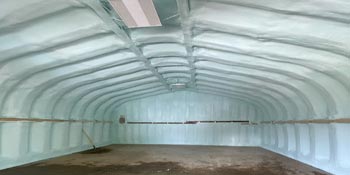Sea Can Insulation
Affordable Sea Can Insulation Experts with 5 Star Reviews
- Residential, Commercial, Industrial, Agricultural
- Local Experienced Experts
- Licensed and Insured
- FREE Competitive Quotes
Request FREE Seacan Insulation Quote
Discover Rebate Opportunities!
Benefits of Sea Can Insulation
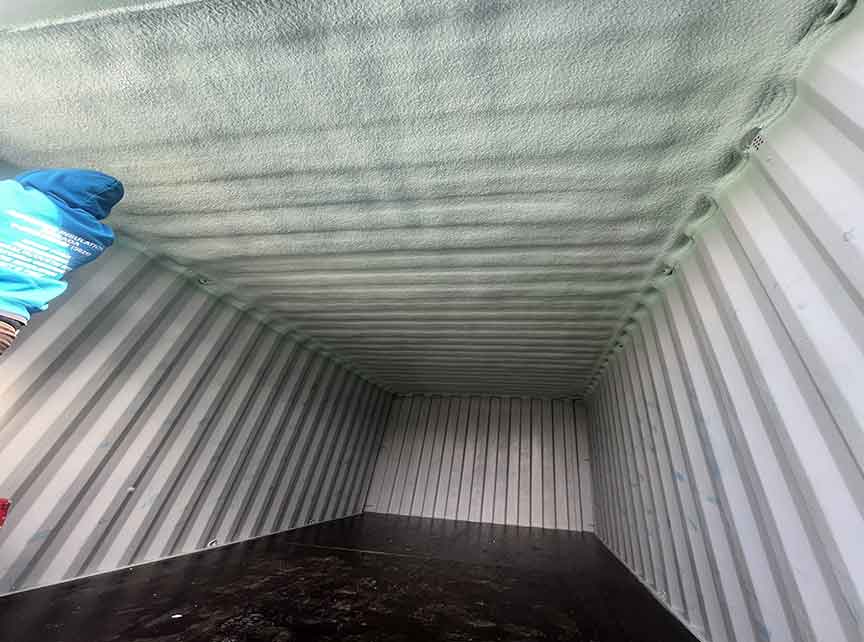
Temperature Regulation
Condensation Prevention
Corrosion Resistance
Enhanced Cargo Protection
Fire Safety
Reduced Maintenance Costs
Check Our Sea Can Insulation FAQ!
What Our Customers Say About Us!
We invite you to call us or get a FREE quote by filling out our form. Our mission is to provide you with the high-quality service you expect for your home or company.
Comprehensive Sea Can Insulation Solutions
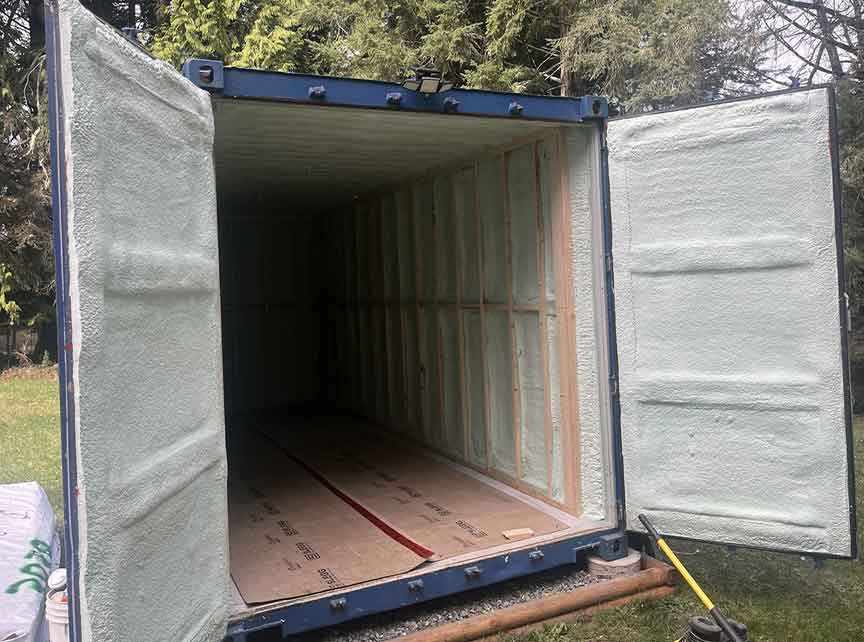
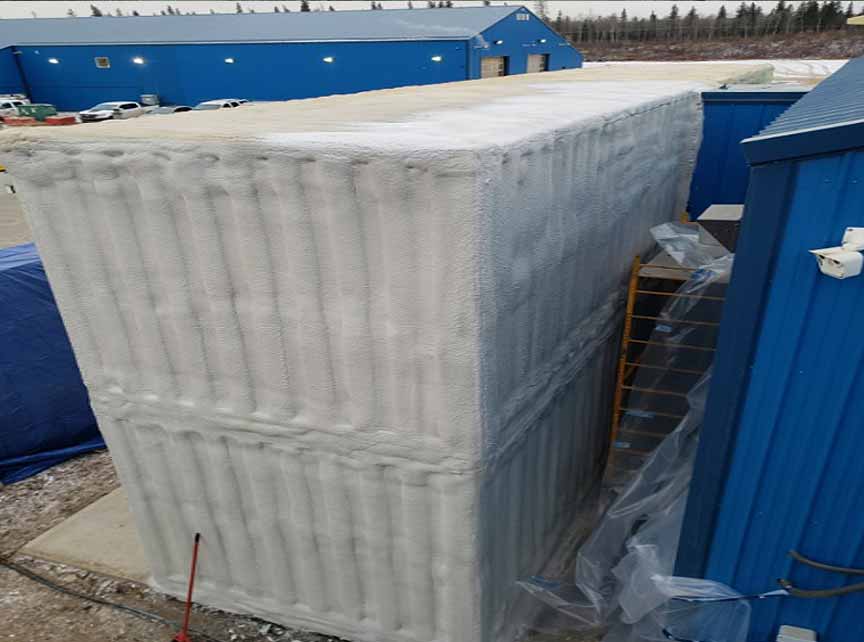
Advance Insulation Canada knows how insulating a sea can provide numerous benefits beyond the simple protection of items. Proper insulation offers dependable temperature regulation for stored products in areas with variable weather patterns, such as Duncan and Victoria in British Columbia. This implies that the sea can maintain a steady atmosphere independent of external conditions, shielding goods from high temperatures, which is critical for objects prone to heat or cold damage.
Insulation is critical in places such as Fort McMurray and Calgary, Alberta, to prevent condensation. Insulation protects items from water damage by reducing moisture buildup within sea cans. This is especially critical in colder climates, where temperature fluctuations can cause condensation, compromising the integrity of stored items. Insulation protects against moisture and improves energy efficiency, lowering the overall cost of maintaining a regulated climate within the sea container.
Aside from temperature issues, insulation is a protective barrier in regions like Fort McMurray, where harsh industrial conditions are expected. Insulating a sea can improve corrosion resistance, lowering maintenance costs and increasing life. The insulation adds extra security to the items inside, protecting them from climatic conditions and potential physical damage. In British Columbia’s coastal cities or Alberta’s industrial landscapes, insulating sea cans is a prudent investment, providing various benefits that improve durability, safeguard cargo, and contribute to cost-effective operations. Do you have a specific location where you’d like spray foam insulated? Here are the most common spray foam services we offer.
Call us to learn more about our sea can insulation or get a FREE quote!
Sea can Insulation: Spray Foam Solutions

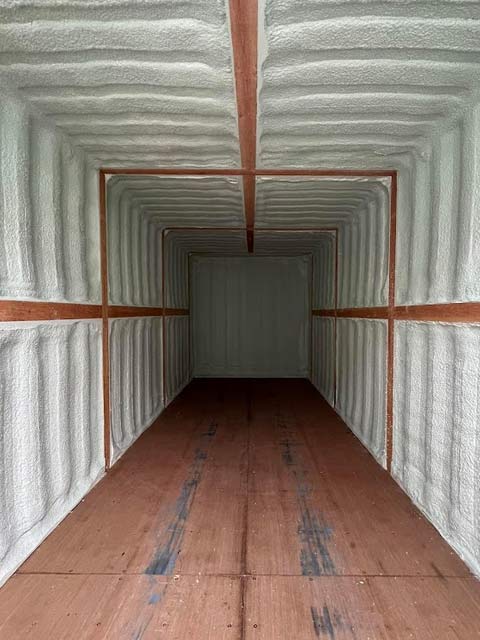



Our Other Great Spray Foam Insulation Services
Do you have other insulation projects that you are considering using spray foam insulation? Here are just a few of our most popular spray foam services.
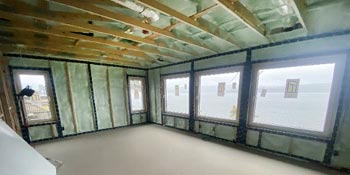
High-efficiency insulation with an airtight seal for optimal temperature control.
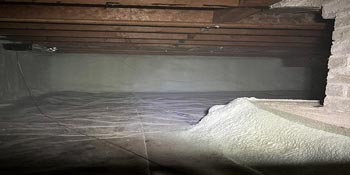
Insulating crawlspaces improves energy efficiency, prevents pests, along with other benefits.
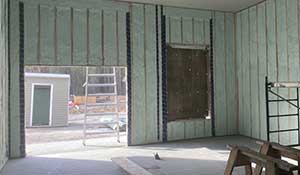
We invite you to call us or get a FREE quote by filling out our form. Our mission is to provide you with the high-quality service you expect for your home or company.
Sea Can Insulation FAQ
Why would you insulate a sea can?
Insulating the sea can provide several benefits, making it a worthy investment. First and foremost, insulation regulates the temperature inside the sea can, resulting in a stable environment for the stored materials. This is critical because high temperatures, whether hot or cold, can harm items. With sufficient insulation, the sea can act as a protective screen, ensuring that stored objects remain in good condition regardless of exterior weather conditions.
Insulation is essential in preventing condensation within the sea can. Condensation can develop when warm air meets cold surfaces in areas with fluctuating temperatures, such as Duncan and Victoria in British Columbia, potentially causing moisture-related concerns. Insulation functions as a barrier, lowering the chance of condensation and, consequently, protecting the contents of the sea can. Insulation controls temperature and contributes to the energy economy, making it a sensible solution for those wishing to lower the energy expenditures connected with maintaining a consistent internal environment within the sea can.
Can sea can insulation protect goods from extreme temperatures?
What role does insulation play in preventing corrosion in sea cans?
How do people convert shipping containers into mobile offices, and what are the key considerations for such transformations?
Converting containers into mobile offices requires numerous stages to assure functioning, comfort, and regulatory compliance. Initially, the container is cleaned and ready for alteration. The process often includes reinforcing the structure for increased durability, installing insulation for temperature control, and adding ventilation to produce a comfortable workstation.
Considerations for such adaptations include adjusting the interior arrangement to fit office necessities like desks, seats, and technological equipment. Electrical wiring and lighting fixtures are used to create a practical workspace, and windows or additional doors can be added to increase natural light and accessibility. Security measures, such as strong locks and alarm systems, are frequently used to protect essential equipment in the mobile office.
Specific considerations in commercial usage on oilfield sites may include environmental problems, such as weather-resistant adaptations to endure harsh circumstances. Adherence to safety standards and laws is critical. Overall, the most important factors include structural integrity, usefulness, and customization to fit the particular needs of a mobile office in an oilfield scenario.






